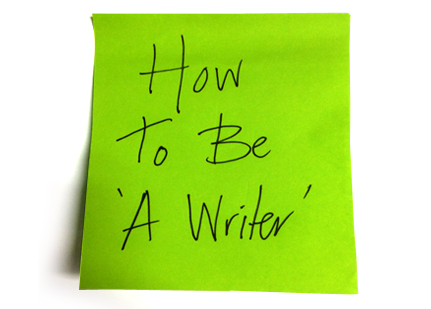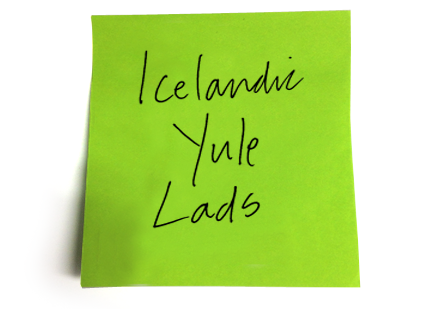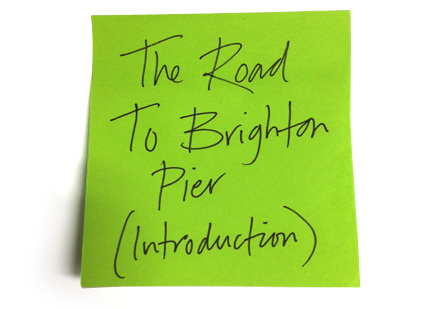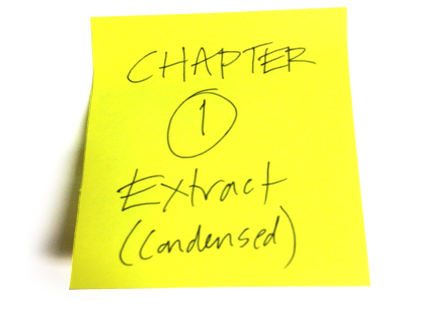These are the notes from a couple of telephone interviews I did as part of the research for The Road To Brighton Pier.
I was checking up on Orwell’s experiences with coal mining in South Yorkshire in the 1930s – seeing how accurate his reporting was (extremely accurate). The idea was to then cross-reference this with Cornish communities built around tin mining today.
I do have a personal interest in this. The miners we’re talking about in the interviews are both of my grandfathers.
#1
Where did your dad work?
New Stubbin Colliery. It used to be owned by the Fitzwilliam family, they owned a few pits in the area, that’s why they were so rich.
Is New Stubbin pit still there?
No, there’s only Maltby round here that’s still a working mine.
How far away was it from where you lived?
About a mile and a half. He used to walk there everyday no matter what the weather. He always wore this massive poacher’s coat with big pockets.
How long for?
He started when he was thirteen (1920) and retired when he was sixty-three (1970). He didn’t have to enlist during the war as mining was a reserved profession, so was steel working. He worked as an auxiliary fireman instead.
Did he ever talk about his job?
No, he tried to keep me away from it, he’d have been mortified if I’d become a miner. I’ve never been down a pit and I’ve no desire to. I saw what it had done to him.
In what way?
He never bettered himself and the dust finished him off. He died from pneumoconiosis – chronic obstructive airway disease. Lots of miners died from respiratory diseases.
Do you know what he did?
Yes, he was a hewer when he first started. They were the men who hacked away at the coal face with a pick. It was before modern machinery so they’d shovel the coal into a truck and pit ponies dragged it back to the shaft. The pit ponies were mostly blind as they lived underground the whole time, they only got above ground for two weeks a year. Each miner was responsible for one pit pony.
Sometime after the war they replaced the ponies with conveyor belts. I remember these as we had a section of one at home. It was a leathery piece of plastic, purple, about an inch thick, six foot by two foot. We used to use it as a mat in front of the sink. It weighed a ton, God knows how he got it home – probably in his big coat.
What shifts did he work?
Afternoons – 2pm to 10pm. I don’t remember him working nights or any other shifts but I suppose he must have done. If he hadn’t been working on the right shift on the Friday he’d have to go and collect his pay from the wages office at the pit on the Saturday. Sometimes I’d go with him and he’d leave me in the canteen with a Wagon Wheel. They were so big I’d never be able to finish one. He never swore, your grandpa – not in front of me anyway. If some of his mates were around and they were swearing, he’d tell them to shut up in front of me.
Do you remember what he looked like when he came home from work?
Mucky black with coal dust. There were baths and showers at the pit head but he still had a wash when he came home. He used to have black rings of coal dust under his eyes. I don’t remember him coughing much but he must have had dust in his lungs.
He never took his shirt off though. A lot of miners had blue scars all over their backs where the dust had got into cuts. I saw his shoulders, they had scars on, but I never saw his back.
He was always hungry – I do remember that. He used to eat cold tripe with lots of vinegar. It was like rubbery polystyrene with lots of dents in the top. He used to fill these up with the vinegar and eat it with a knife and fork. There was a tripe shop on Wellgate (town centre), it only shut down about twenty years ago.
For his snap he used to have bread and dripping and a flask of tea.
Snap?
A snap tin – metal in two pieces. One end was rounded, the other flat. It had a loose floppy handle like a biscuit tin. He’d usually use his empty snap tin to bring home a piece of wood for the fire. I’ve no idea where he pinched it from, it used to fit the shape of the tin perfectly – he must have had to cut that way.
Do you remember him ever wearing clogs?
No. He might have done at the pit or when he was younger. He used to mend his own shoes though. He’d get a lump of leather and mark it off on a cobbler’s last then cut out the shape. He used to make mine that way as well.
Did he ever have an accident down the pit?
Yes, sometime in the late thirties. He couldn’t work as a hewer after that, instead he used to drive the paddy train that took the men from the shaft to the coal face and back.
What happened?
I can’t remember. He broke some vertebrae in his neck I think.
Did he get any compensation?
No, there wasn’t anything like that in those days – the unions didn’t have that much power. We got some compensation for his death a few years ago, though. The miners union claimed against the coal board on behalf of all the miners who’d died from work related diseases. That would have been about 2005.
And when did he die?
1988. He was 80 which isn’t bad for a miner.
Any idea what he used to get paid?
No idea. We never used to talk about anything like that. He got a pension and a £100 redundancy when he retired though. I also found this docket which says: New Stubbin Benevolent Fund. 6th November 1970. Re: Early Retirement, paid up 6s.
What was it like where you were living?
We lived in three places, all on Potter Hill. I was born in number 29 then we moved to number 25. They both had two bedrooms, a front room, kitchen and outside toilet. They were all rented from a private landlord. Eventually we moved to number 61 which was a council house. That was a bit bigger and was modernized in about 1970.
No bathroom?
We didn’t have a bathroom until I was 15 (1959). We used to go round to our Auntie Connies’ if we wanted a bath – she lived up the road.
What did you all do in the evenings?
Dad never went out boozing, he didn’t drink. His dad used to have a pub, I don’t know if that put him off it. The steelworkers used to drink a lot though, maybe because it was such hot work. They used to finish their shift and go straight to the pub to drink all their wages away.
Anything else?
He used to whistle all the time, The Old Rugged Cross was his favourite. That’s always how I used to hear him coming home – whistling, tunelessly. He might not have been happy with his lot but he certainly wasn’t suicidal or anything.
#2
Where did your dad work?
He worked at loads of pits. They shafts are all linked underneath anyway; you could walk from one pit to another just like a roadway. I remember him working at Silverwood Colliery because they expected them to drink tea out of jam jars. He said it was a step too far and left. You could do that then though, there were plenty of mining jobs around.
How long for?
From the age of fourteen (1925) until he was twenty-eight (1939).
He didn’t have to join up during the second world war did he?
No, but he volunteered. July 28th 1939 – I remember that because it was the day before he married my mum. She was absolutely livid when she found out. If you volunteered you see, you could choose between the navy, the air force or the army. If he had to go, he wanted to be in the navy.
But I thought mining was a reserved profession. Why did he choose to join up?
Because he was a clever dick. He wanted to be one of the brave ones. Plus, I don’t think he wanted to go down the pit and there weren’t many other options – it was either the pit or the steelworks or the railways. Whole families went down the pit, everyone just followed on. His dad had a wooden leg after a mining accident.
Did he go back down again after he left the navy?
Yes, he got torpedoed in 1942 and took on a lot of oil. He went back down the pit in 1943 and stayed until 1952 when he had to leave because the doctors told him his lungs couldn’t stand it anymore. He didn’t get any pension because he left of his own accord – same with the navy pension, he didn’t get that either. The navy said his lungs were bad because of the pit and the pit said his lungs were bad because he’d been torpedoed. He got nothing from either of them.
His lungs were bad for the rest of his life. The doctors said they were like sponges, there was nothing there. He couldn’t go out in the winter and he got pleurisy every year.
Where did he work after 1952?
At the steelworks as a fitter’s mate. That was too much for him as well, he had to work in the stores for most of the time. He retired in 1970 and got about £700 redundancy.
What did he do when he was a miner?
He was a hewer – they were paid the best because it was the most dangerous work. If there was a cave in it’d go straight on top of them. They worked with pick-axes right at the front of the seam in a space about 3 foot deep. They had a way of working – the Miner’s crouch they’d call it – kneeling on the floor with their feet behind them and to the side to cut down on space. Then they’d sit on their heels and lean forward with their picks in front of them so they could work. It’s the lowest you can get and still be able to move about.
What shifts did he work?
All of them, it varied. There were three shifts: Mornings which were 6am while 2pm; afternoons: 2pm while 10pm and nights: 10pm while 6am. The mines never closed, not even at Christmas, they were working 24 hours a day. The cage would come up to bring up one shift and take the next one down. You could never be late either because of the dog-tags. When you started your shift you were given these dog-tags with your name on. You handed it to the man in the cage as you went down and he’d give it you back when you came up. That way, if there was a cave-in, they always knew who was down there.
Do you remember what he looked like when he came home from work?
Yes! Clearly. He had a flat cap on – they all wore flat caps – and his face was completely black. They didn’t have pithead baths in most of the places he worked so we all had to leave while he washed in a bucket of water or the sink. He was always smoking as well; they didn’t allow cigarettes or matches in the mine because of the gas. They used to take canaries down with them and if the canary died, everyone would have to come up.
Did he ever have an accident down the pit?
Yes, it was lucky as he’d gone to work with new boots on. Somebody switched on the conveyor belt while his leg was jammed in it. They switched it off in time to save his leg but it was very badly mangled. If it hadn’t been for the new leather in the boots he’d have lost it – like his dad.
It was different in those days, they didn’t ring us up to tell us what had happened, they just brought him home in an ambulance. My mum had no idea – nothing was ready. I never saw him with short trousers after that, the scarring was pretty bad. I never saw him without his shirt on either, his back was pitted with blue marks from the coal dust.
Did he get any compensation?
No. The coal board came and redecorated our house though, because of the subsidence. All the tunnels underneath us, when the seam was finished, they’d topple all the pit props behind them as they came out. The tunnel would then cave in and all that loose earth settling caused lots of subsidence. The coal board came and saw all the cracks in our walls and gave us money to redecorate with special wallpaper. They re-covered the drive too as the concrete was shattering.
Did he take snap to work with him?
Yes, he always had his flask and snap tin. He took either bread and dripping or bread and jam or bread and marg. Sometimes just bread if we couldn’t afford anything else!
Do you remember him wearing clogs?
No, but all the miners wore segs on their boots, there were so many of them you could hear them coming when the shift changed. Segs were curved bits of steel fitted to the toes and heels that kept your boots from wearing out too quickly. They used to spark if you kicked them right. My dad used to repair our shoes when they needed doing.
What was it like where you were living?
Everybody rented in those days. My parents did for a bit but then they bought their house in the late 50s for about £900. They had to because of our Derek (severely disabled with polio), if anything had happened to them there would have been no-one to look after him.
Did you have a bathroom?
Yes, we had an indoor toilet and a bathroom! All my mum’s family used to come round for a bath. I remember coming back from Rotherham with our Auntie Joyce, I was only little and I said to her: ‘Are you coming round to ours for a bath tonight?’ and she said yes and I said – at the top of my voice: ‘You haven’t been for a long time have you?’ She wasn’t happy.
I remember, when it was cold, being in the tin bath in the front room in front of the fire. There’s nothing better than being in the bath next to a roaring fire.
Anything else?
Yes, I remember there were some perks to being a miner. You could buy used bath towels from the pithead baths for a few pence. They were massive and lasted forever.
We also got free coal, so many deliveries a year. You couldn’t possibly use it all so my dad used to give a lot of it away. That was illegal though, it was meant to be for miners only. He got reported once and they threatened to stop his coal. A lorry used to come and dump it all on your drive in a big heap – no sacks, you’d have to move it to the coal place with wheelbarrows and shovels.
I remember him coming home one day when the delivery truck had just been and they’d blocked off the drive – a massive great pile of coal. I’ve never seen him so angry. He drove straight over the top of it on his motorbike.






